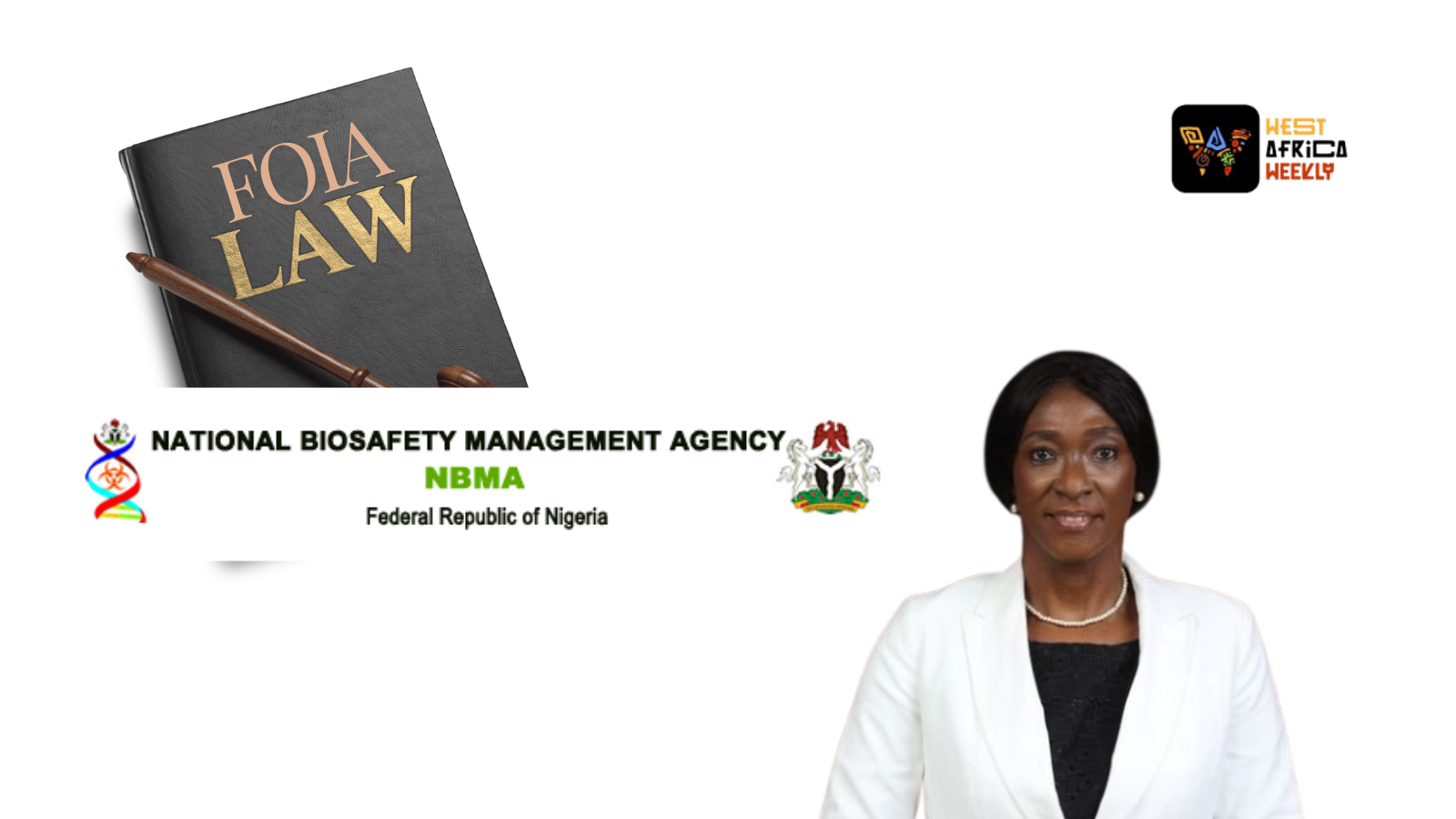
After FOIA Violation, NBMA Promises To Provide Risk Assessment For Genetically Modified TELA Maize

The National Biosafety Management Agency (NBMA) has promised to provide the public with the risk assessment it conducted to ascertain that the variety of genetically modified organisms (GMOs), such as TELA maize, is safe for human consumption.
The Head of Information and Communications Technology (ICT), Bongos Okoh, made this known on Thursday in response to the Freedom of Information request the agency had earlier violated.
On Monday, June 24, 2024, West Africa Weekly wrote to NBMA to provide the risk assessment and analyses it conducted to ascertain the now-commercialised TELA maize is safe for human consumption. This was amidst the ongoing public debate and concerns that borders on transparency and health implications of lab-altered seeds.
Under the Freedom of Information Act (FOIA), 2011, I write to obtain an authentic copy of the ‘risk assessment’ and ‘analysis’ conducted before and after commercialising the Genetically Modified Organisms (GMOs) Seed Variety named TELA Maize the FOIA request partly reads.
Also, copies of approval from the National Agency for Food and Drugs Administration Control (NAFDAC), the Federal Competition & Consumer Protection Commission (FCCPC), Standards Organisation of Nigeria (SON), Nigeria Agricultural Quarantine Service (NAQS), and the National Biotechnology Research and Development Agency (NBDRA).
Despite violating the stipulated seven-day grace period to grant the request, NBMA said it had received the mail and forwarded it to the appropriate department for further action.
Meanwhile, contrary to the NBMA, NAFDAC said the agency has no evidence to prove that the genetically modified TELA maize is safe for human consumption.
NAFDAC requested that the NBMA withdraw its statement on the safety of the genetically modified TELA maize.
Also, it will be worth noting that the NBRDA, in a report, claimed that the TELA maize is an edible vaccine—a position which adds to public contention on its safety.
Read more: Chelsea Appoint Nigeria’s Seyi Olofinjana for Talent Management in Africa
About The Author
Mayowa Durosinmi
author
M. Durosinmi is a West Africa Weekly investigative reporter covering Politics, Human Rights, Health, and Security in West Africa and the Sahel Region
Mayowa Durosinmi
M. Durosinmi is a West Africa Weekly investigative reporter covering Politics, Human Rights, Health, and Security in West Africa and the Sahel Region
Related Articles
Zimbabwe Rejects $350m US Health Deal Over Sovereignty Dispute
Zimbabwe has formally withdrawn from negotiations on a proposed $350 million health...
ByWest Africa WeeklyFebruary 25, 2026Tinubu Spends $9M on Lobbyists While Nigerians Die from Starved Health System — Less Than ₦36M Released from ₦218B Budget
As Nigeria’s healthcare system continues to strain under chronic underinvestment, fresh disclosures...
ByWest Africa WeeklyFebruary 12, 2026Ifunanya’s Death and the Price Nigerians Pay for a Broken Health Sector
The sudden death of fast-rising Nigerian singer Ifunanya following a snakebite in...
ByWest Africa WeeklyFebruary 2, 2026MLMs Like Neolife Face Rising Criticism in Nigeria Over Financial Losses, Psychological Stress, and ‘Brainwashing’ of Young People
Multi-level marketing (MLM) companies operating in Nigeria, including well-known names such as...
ByWest Africa WeeklyDecember 16, 2025











